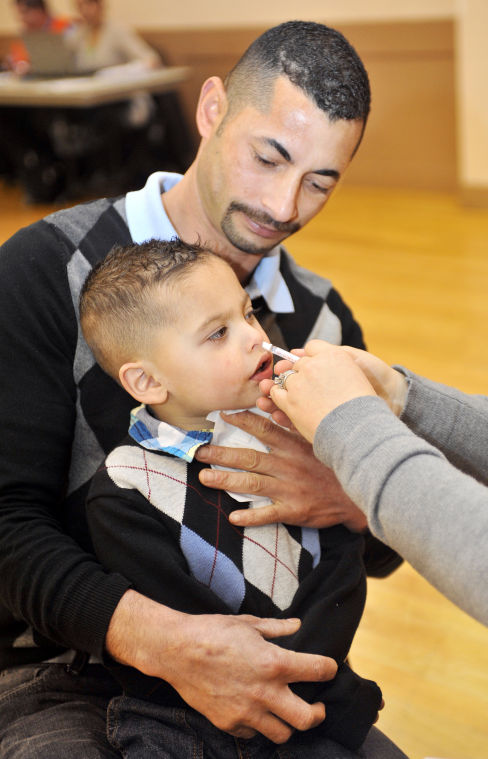
School districts in San Benito County are preparing to implement the new law forbidding “personal belief exemptions” on mandated vaccinations.
Parents sending their children to public and private schools won’t have the option to seek “personal belief exemptions” for required vaccines starting July 2016 after Gov. Jerry Brown signed Senate Bill 277 into law last month.
The bill introduced by Sens. Richard Pan, D-Sacramento, and Ben Allen, D-Redondo Beach, will have most California students that walk into classrooms on or after July 1, 2016 vaccinated for at least 10 illnesses including diphtheria, hepatitis B, measles, mumps, the whooping cough, rubella, tetanus and chickenpox. The law won’t apply to students with medical exemptions and those enrolled in a home-based private school or certain independent study programs.
“What it really means for us is just doing a lot of education to the parents,” said Ruben Zepeda, the superintendent of the Aromas-San Juan Unified School District, “especially parents who are concerned that there might be something negative in terms of what it might mean to their children to be vaccinated.”
The current law allows for “personal belief exemptions” if a parent consults with a health care practitioner and receives information about the benefits and risks of vaccines.
Christina Hildebrand, of the Palo-Alto based nonprofit A Voice for Choice, calls the new law “too much too fast” and “unconstitutional” because it violates California students’ rights to free and public education that shouldn’t be “taken away because of their medical history or medical treatment,” she said. The new law is also not “narrowly tailored” and lists not one but 10 illnesses that students must be vaccinated for, Hildebrand said.
A referendum was filed, Hildebrand said. Proponents now have 90 days from the date of the enactment of the bill to gather the 365,880 signatures needed to get it on the state ballot.
About 2.5 percent of the state’s population opts for personal belief exemptions to vaccines, Hildebrand said. It’s hard to tell how many and which of the required vaccines they’re opting out of, she said.
“We don’t have a vaccination crisis in this state,” Hildebrand said.
But for Dr. Anju Goel, the county’s public health officer, vaccinations don’t just help an individual but affect an entire community. Herd immunity, or the phenomenon where a highly vaccinated population protects the few members that are not able to receive immunizations for medical reasons, occurs when 90 percent of a group receives the vaccine.
“I think it’s a very positive public health move that will result in fewer illnesses and deaths from vaccine-preventable illnesses,” Goel said. “Vaccines are one of the greatest public health measures in the last century. They have saved literally millions of lives.”
Hildebrand made the decision not to vaccinate her two children, but she is not relying on herd immunity, she said.
“I’m relying on my weighing the risks and I believe that every parent should weigh the risks,” she said.
As for the local effect of the law, San Benito County had slightly more than a 1 percent personal belief exemption rate—“so this law will not have a significant impact on our residents,” Goel said.
In the Hollister School District, more than 99 percent of students had vaccinations, Superintendent Gary McIntire told the Free Lance in February. Of the less than 1 percent opting out of immunizations, most did so with “personal belief exemptions,” he said. The superintendent could not be reached for comment by deadline for this story.
Zepeda, who fielded a phone call from the Free Lance while out of town Monday, did not have the district’s vaccination rate readily available. Goel provided the newspaper with statistics from government data.
Most schools in Hollister and San Juan Bautista had no personal belief exemptions, according to California Department of Public Health records of the 2014-15 kindergarten student immunizations. Of those that did, none were for religious reasons.
Students’ rights for medical exemptions don’t go away, Zepeda said.
“The ones that can’t get vaccines for any number of medical reasons, they can still get the exemption through their physician,” the superintendent said. “And that’s why we’re going to refer parents to their personal physicians to really make sure the process isn’t going to hurt their child.”
Last year, the district partnered with other groups to offer a low-cost vaccination clinic to families and “we’ll probably do that again this year,” he said.









